Google Ranking Factors: Complete Guide to Boosting SEO in 2026
- October 9, 2025
- Search Engine Optimization(SEO)
Ranking on Google requires a keen knowledge of the factors that promote growth. Knowing the factors and optimizing the content and website according to that can help you rank your website on the SERP.
What makes it harder for SEO service providers is that Google does not divulge the key details that tell how the algorithm actually works. However, the good news is that SEO experts worldwide agree on specific criteria that can help your website rank. So, let's not delay and dive straight into the numerous
In recent years, Google has started sharing more about the ranking factors that influence how search works and how your website appears in search results.
What is Google Ranking Factor?
Essentially, Google ranking factors are the various components that determine how Google perceives your website and ranks it on the SERP. These often include the technical aspects of the website, such as page load speed and mobile website optimization, as well as qualitative aspects like content quality, the absence of black hat SEO techniques, and the overall website reputation through backlinking and other relevant factors.
Now that we know what Google ranking factors are, let’s dive into each of the SEO ranking factors and understand them in depth.
Top SEO Ranking Factors
There are over 100 ranking factors that determine how your website appears on the SERP. Each factor carries a different weight related to its importance. But it is the best practice to at least work on each factor.
Search Intent
Search intent refers to the user’s intention behind looking up a certain keyword on Google. Every keyword has a distinct search intent. Understanding and incorporating the search intent in your content helps your website rank higher on the SERP, as this particular ranking factor makes your content relevant for the readers and in the eyes of Google. Google’s Hummingbird is a key update that emphasizes the importance of context setting in relation to keywords.
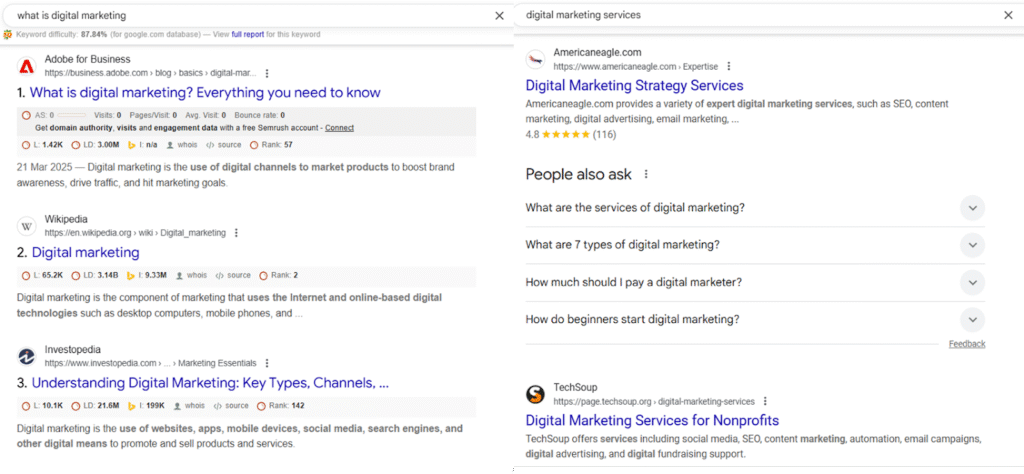
The search intent for the keywords ‘what is digital marketing’ and ‘digital marketing services’ differs. The first has an information search intent, whereas the second has the navigation/transactional search intent. Writing the content to meet the search intent can push your website up in the page, and it is a positive sign for Google.
Content Quality
Another important Google ranking factor is the quality of the content. Google demotes auto-generated/paraphrased content. Moreover, Google has also openly stated that using auto-generated AI content is a negative signal to Google.
According to the trend, the ideal word count is typically around 1,400 words or more to rank on page 1.
However, more than the word count, content quality takes center stage for Google to determine the ranking of a page in the SERP.
Backlinks
Backlinks are a crucial Google ranking factor. They act as a vote of confidence for Google, signalling that your content is authoritative and meets the user requirements. Obtaining backlinks from high-authority websites also amplifies the trustworthiness of your website. You can check your domain authority online, as well as check the quality of your backlinks on the search console. It is a best practice to stay away from spammy websites as these can negatively impact your SEO Google ranking.
Keyword in Title Tag
Another Google ranking factor is the meta tags for SEO. They can boost your page in the Google if the keyword is in the title tag. The keyword should be in the beginning of the title tag. As per the latest, the pages with keywords in the beginning of the title have a higher chance of ranking than the pages with keywords at the end of the title tag.
Domain Age/Authority
Older domains perform better on serp as they have a more extended history on the website, which provides more time to establish the trust. Similarly, the backlink profile of the older domain is also strong, which leads to a high domain authority.

This is the domain authority of a website that has been around for over 15 years. This website’s SEO Google ranking is typically on 1st page for most keywords.
Keywords in H1
Keywords in the H1 tag are an important ranking factor as it signals to Google what th page is actually about. Both the search engine and the users determine a page's relevance based on the keywords in Google's h1 tag.
Top-Notch Technical SEO
Along with having a super on-page SEO strategy, maintaining the technical aspect of the website is equally important. Having the good tech specs of the website in place is essential to signal to Google that your website keeps a user-friendly interface and is easy to use. Confused?
Check out our technical SEO checklist and mark each one off the list to have a powerful website.
Defining the Canonical URL
Canonical URLs are crucial for SEO because they tell search engines which version of a page is the main or preferred version in the eyes of the Google. It helps eradicate duplicate or near-duplicate content across multiple URLs in a website. Having a defined canonical URL helps amp up your Google SEO Ranking.

Alt-Tags
Alt text is also known as the alt attribute and refers to a snippet that describes what the image shows. It is a crucial aspect of SEO that determines how the search engine views the image when it analyses the overall content. In a WordPress website, you can update the SEO alt tag through Yoast or other relevant plugins.
Concentration Recency (caffeine update)
Google introduced the caffeine update in 2010, which significantly overhauled the entire scenario. It focused on the fresher content and ensured that what users view is relevant to them. Due to this update, Google started to crawl recently updated web pages quickly to ensure that the content remains relevant according to the requirement. Thus, through it, Google started to show more recently updated content on the SERPs.
Content Freshness
Google aims to provide users with more relevant and updated content for the queries. Moreover, Google prioritizes fresh content for trending, breaking news, or rapidly evolving topics such as global politics.
Outbound Links
Another Google ranking factor is the outbound links, as these establish the credibility and trustworthiness of your website, improve user experience by providing valuable resources, help search engines understand your site's niche and content, and, moreover over foster relationships with other authoritative websites.
Mobile Friendly Updates
Your website should be mobile-friendly or optimized for mobile devices. That means it must fit the screen resolution of any device without any manual intervention. It is a crucial Google ranking factor that determines how well your page ranks in search engines.
Internal Linking
Internal linking is another important Google ranking factor that determines the cluster of topics on your website. Internlinking relevant pages with each other demonstrates your authority over the topic.
Readability
The readability score is another important factor that determines a website's ranking on Google. For a general audience, the readability score should correspond to the 8th-grade reading level, i.e., 60 to 70 on the Flesch reading ease test. You can also check the readability score on Grammarly and the Hemingway editor.
Url Length
While Google states that URL length does not directly impact ranking, it recommends keeping the URL between 50 and 75 characters to improve click-through rates.
URL Path
Too many subfolders negatively impact the Google SEO ranking. It is ideal to keep the pages closer to the home page with minimal subfolders in between. This also boosts the authority of the home page is a major Google ranking factor.
Parked/Doorway Domains
Parked or doorway domains are considered a negative Google ranking factor, as they are often created solely to manipulate search rankings rather than provide genuine value to users. Parked domains typically display minimal or placeholder content, whereas doorway domains are optimized to target specific keywords and direct traffic to a primary site.
Google’s algorithms are designed to detect these practices, and sites using such domains can face penalties, including lower rankings or complete removal from search results.
To maintain strong SEO performance, it’s essential to focus on creating high-quality, relevant content on legitimate domains rather than relying on manipulative techniques like parked or doorway domains.
Site architecture
Site architecture plays a crucial role in Google rankings by ensuring that your website is easy for both users and search engines to navigate. A well-organized structure with clear hierarchies, intuitive navigation, and fast-loading pages enhances user experience and helps search engines crawl and index content efficiently. This ultimately boosts visibility and overall SEO performance.
SSL Certificate
Having a valid SSL certificate signals to Google that your website is secure and not a phishing scam. To determine if the website is secure, look for the lock symbol in the URL bar. It is another major SEO ranking factor for Google.

EEAT Guidelines
E-E-A-T, which stands for Experience, Expertise, Authoritativeness, and Trustworthiness, is a key Google ranking factor that evaluates the quality and credibility of content. Websites that demonstrate strong E-E-A-T are more likely to rank higher, as Google prioritizes content created by knowledgeable authors, backed by reliable sources, and trusted by users. Focusing on E-E-A-T helps improve search visibility, user trust, and overall SEO performance.
Here’s what Google has to say about EEAT guidelines.

Breadcrumb Navigation
Breadcrumb navigation helps ranking indirectly by improving user experience and providing a clear site structure to search engines. This, in turn, increases CTR and time on site, thereby enhancing crawlability and increasing your SEO Google ranking.
Core Web Vitals
Metrics like LCP, FID, and CLS measure user experience and are the technical factors that Google considers for SEO ranking. Optimizing for them is crucial as they are an important Google ranking factor. You can check the Core Web Vitals under 'Experience' on the Google Search Console.
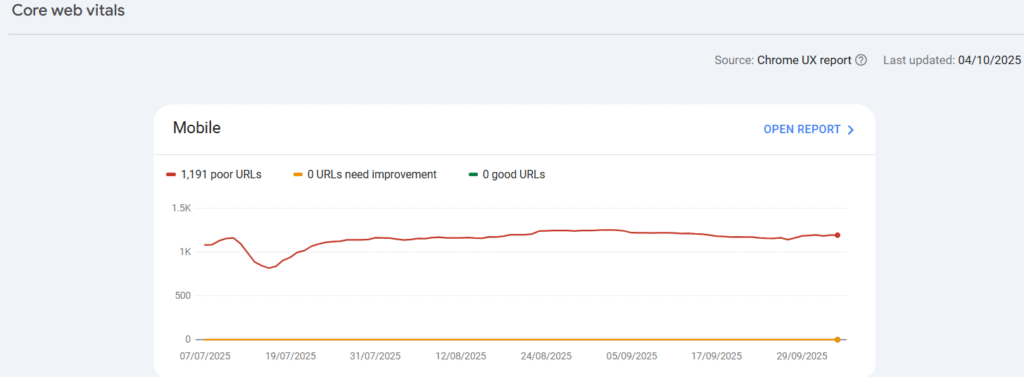
You can optimize by checking the errors through this section on Google Search Console.
Anchor Texts
Anchor texts are another vital Google ranking factor that passes authority from one page to another. They should be relevant to the page and descriptive to improve internal linking and backlink quality.
Backlinks from Relevant Sites
Links from topically relevant domains enhance authority and trustworthiness, which in turn improves your SEO Google ranking.
Excessive 301 Redirects
Too many redirects can dilute link equity and slow down crawlability. It acts as a negative signal for SEO Google ranking. It is better to use noindex in robots.txt rather than stating 301 redirects explicitly.
Use of Schema
Structured data (FAQ, HowTo, Product) enhances SERP visibility and rich results. Moreover, it also enhances SEO Google ranking.
RankBrain Optimization
It is another very significant Google ranking factor. Content aligned with user satisfaction, relevance, and context performs better under Google’s AI-based ranking system.
Spam Updates
Avoid black-hat techniques, keyword stuffing, or spammy links to prevent algorithmic penalties to enhance your SEO Google ranking.
Bounce Rate
High bounce rates indicate low engagement; improving content relevance reduces this issue and enhances SEO. To amp up your website's Google ranking, it is better to implement strategies to combat a high bounce rate.
Manual Actions
Google may apply penalties for violating guidelines. Monitoring Search Console is essential to take relevant action against any manual action.
Sandbox Effect
Sandbox is a significant update from Google that came out in 2024. Therefore, new domains may take time to rank as Google tests trust and authority signals.
Google Dance
Algorithm fluctuations can temporarily affect rankings, a phenomenon often referred to as the Google dance by SEO experts. Consistent optimization helps maintain your website's Google ranking..
Search Intent Alignment
Always write content that satisfies the user’s intent for better engagement and rankings.
Keywords in Meta Description
Including the main keyword improves CTR and signals relevance to Google, and improves your website's Google ranking.
Content Structure & Headings
Proper use of H2, H3, and H4 headings improves readability and helps Google understand the content hierarchy.
Latent Semantic Indexing (LSI) Keywords
It is another important factor that impacts your SEO Google ranking. Using related keywords enhances semantic relevance and topic authority.
Multimedia Optimization
Images, videos, and infographics with optimized alt text improve engagement and SEO.
Table of Contents
It is the best idea to add table content before beginning the article. Helps users navigate content and allows Google to understand page structure.
FAQ Implementation
Structured FAQs improve rich results and enhance user engagement. Moreover, adding a schema related to FAQ also enables Google to crawl effortlessly.
Word Count & Depth
Comprehensive content covering all aspects of a topic performs better than thin content.
Originality
Originality is another factor that matters a lot, and it is an important Google ranking factor. Unique, plagiarism-free content ranks higher and builds trust.
Redirect Management
Clean redirects maintain link equity and prevent crawl issues. Whereas having lots of redirects makes it difficult for Google to crawl your website.
Mobile Optimized Website
Having a mobile website or the website optimized for mobile is a significant Google ranking factor. Accelerated Mobile Pages enhance mobile speed and visibility.
Internal Anchor Text Optimization
Descriptive anchor texts improve internal linking and keyword relevance. Moreover, it also impacts your SEO Google ranking.
Social Sharing Integration
Having snippets to share on social media is a positive Google ranking factor. Facilitates content distribution and drives traffic, indirectly affecting SEO.
Author Credentials
Having an author bio improves the trustworthiness of your website. Showcasing expertise signals authority to Google.
Backlink Diversity
A mix of branded, exact-match, and generic anchors prevents over-optimization.
Local SEO Optimization
Geo-specific keywords, citations, and Google Business Profile optimization improve the website's Google ranking.
NAP Consistency
Consistent Name, Address, Phone info across directories builds local trust and also improves your ranking in local SEO.
Location-Specific Landing Pages
Creating pages that target specific locations enhances local relevance and enhances your SEO Google ranking.
Reviews & Ratings
High-quality reviews and ratings enhance trust signals and local rankings.
Voice Search Optimization
Natural language and conversational content improve voice search performance and uplift your website’s Google ranking.
Video SEO
Optimized titles, descriptions, and transcripts increase visibility on Google and YouTube.
Passage Indexing
Clear headings allow Google to surface content passages independently.
RankBrain & AI Signals
It is another significant Google ranking factor. Optimizing for relevance and user satisfaction aligns content with AI-driven ranking.
Seasonal & Trending Content
Targeting current trends and seasonal topics increases search relevance and boosts your website’s Google SEO ranking.
AIO SEO Plugin Optimization
Plugins like Yoast or Rank Math automate technical SEO, schema, meta tags, and redirects efficiently.
Content Freshness & Updates
Regularly updating pages signals relevance and encourages higher rankings. It tells Google that you continuously update your content.
Internal & Outbound Link Strategy
Properly linking internally and externally builds authority, trust, and engagement. Moreover, it also helps Google understand the website's linking structure.
User Engagement Signals
High dwell time, repeat visits, and low bounce rate indicate content value and help boost the website’s SEO ranking.
Multilingual & Geo-Targeted SEO
Using hreflang and geo-specific content helps rank internationally and locally.
Anchor Text Diversity in Backlinks
Varied anchor texts prevent penalties and improve backlink quality. It is the best practice to use keyword variation as anchor text.
Structured Data for Local SEO
Local business schema, including opening hours and service information, enhances local search visibility.
Click-Through Rate Optimization
Optimized meta titles and descriptions improve SERP clicks, signaling relevance to Google.
Outbound Links to Relevant Sites
Citing authoritative sources adds credibility and helps contextual relevance. Moreover, it also uplifts your website’s Google ranking.
Social Proof Signals
Shares, mentions, and engagement indicate the relevance and quality of content.
Spam Avoidance & Penalty Prevention
Avoid black-hat techniques, such as cloaking, hidden text, or link schemes, to maintain your Google SEO rankings.
Ranking on Google is a combination of art and science. While no single factor guarantees a top position, understanding and optimizing for a wide range of technical, content, backlink, user experience, AIO SEO, and geo-specific factors gives your website the best chance to perform well on SERPs. Focusing on quality, relevance, and user satisfaction, while staying up to date with Google’s evolving algorithm updates, will ensure long-term SEO success. By systematically addressing these Google ranking factors, you can enhance visibility, establish authority, and drive targeted traffic to your website.
Priyanka is a long form content writer with experience of over 5 years. She has worked in multiple industries including real estate, ecommerce services and products, hospitality, business formation, and more. In her free time, she loves to read books, click photographs, and listen to podcasts.
About us and this blog
We are a digital marketing company with a focus on helping our customers achieve great results across several key areas.
Request a free quote
We offer professional SEO services that help websites increase their organic search score drastically in order to compete for the highest rankings even when it comes to highly competitive keywords.
Subscribe to our newsletter!
More from our blog
See all postsRecent Posts
- How to Submit Website to Bing: A Complete Beginner’s Guide January 4, 2026
- What is a Title Tag? A Complete Guide for Beginners December 7, 2025
- SEO Content Structure: Tips to Rank Faster November 30, 2025



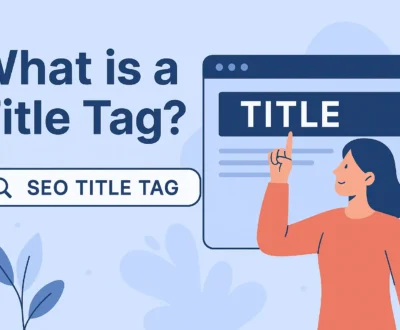
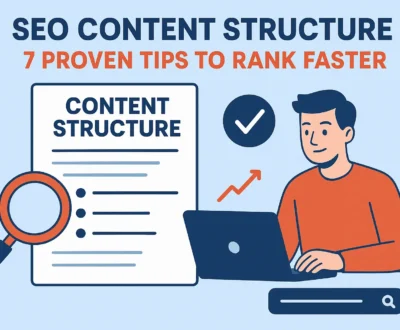
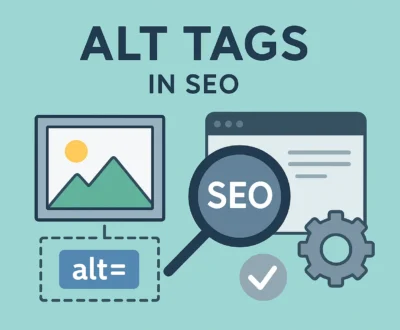

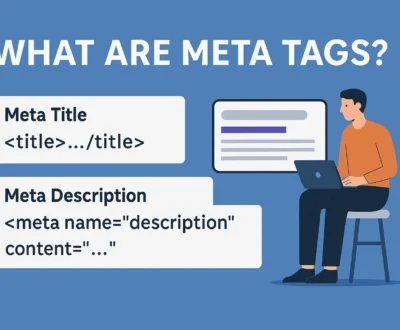

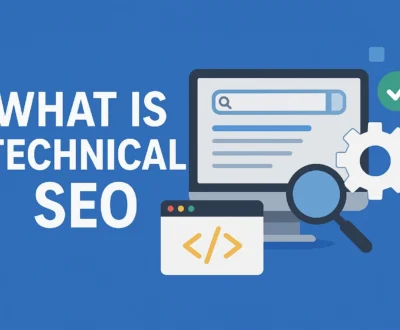

Pingback: Schema Markup: Why It’s Important for SEO?
Pingback: On-Page SEO Checklist: Boost Google Rankings in 2026